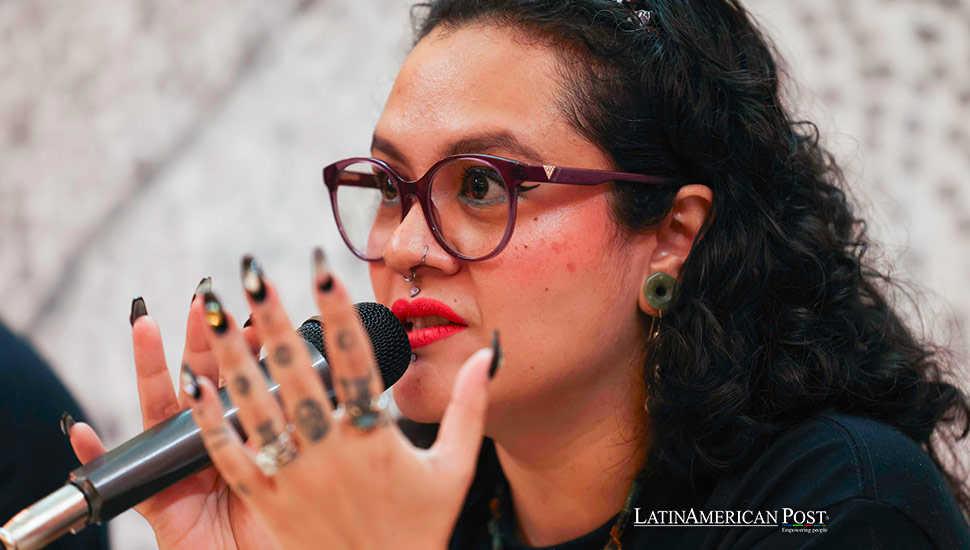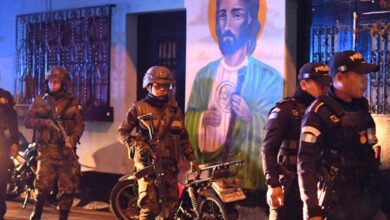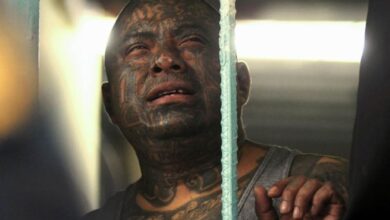Guatemalan Rapper Rebeca Lane Sheds Light on War-Torn Adoption Scandals

Guatemalan rapper Rebeca Lane collaborates with young adults who were illegally adopted during the civil war to release “Estamos Aquí,” a song that highlights their ongoing search for their biological families decades later.
Guatemalan rapper Rebeca Lane has teamed up with a group of young people who were victims of illegal adoption during the country’s brutal civil war in the late 20th century. Together, they launched the song “Estamos Aquí” to remind the world that many victims of human trafficking are still searching for their families decades after being separated.
“Yo no lo recuerdo, pero cuando era un pajarito me robaron de mi nido, en una jaula me metieron y mis alas indefensas para el norte las vendieron,” sings Lane in the opening verse of the new track, which she presented during a press conference in Guatemala City. The lyrics poignantly recount the pain and disorientation of being taken from one’s home and sold to a foreign land.
The Painful Legacy of Guatemala’s Civil War
Lane explained to EFE that the song aims to “reclaim the work of those who have returned to search for their families and to recognize that this was a crime that left deep scars during the war.” Between 1960 and 1996, Guatemala endured an internal armed conflict that resulted in over 250,000 deaths and disappearances. According to social organizations, around 35,000 children, predominantly from indigenous communities, were stolen and illegally adopted into countries such as Belgium and Canada. The complicity of the Guatemalan government and the international community in these illegal adoptions is a painful truth that needs to be acknowledged and addressed.
One of these children, Ignacio Alvarado, spoke to EFE about his experience. Adopted at just a few months old and raised in Quebec, Canada, Alvarado returned to Guatemala in 2021 to search for his biological mother. “We, as those who were illegally adopted, have organized to begin the search for our families,” he said. This initiative is a testament to the resilience and determination of those who refuse to let the ravages of war erase their identities, inspiring hope and resilience in others.
Music as Symbolic Justice
Rebeca Lane sees music as a powerful tool for symbolic justice. “Having social struggles that have motivated us represented in a cultural product is part of that justice,” she explained. The “Estamos Aquí” music video has been available on digital platforms since June 21, when Guatemala commemorates the National Day Against Forced Disappearances. This power of music to bring about justice engages the audience and empowers them to be part of the change.
The song and its accompanying video serve as a platform for the stories of those affected by these forced separations. By blending art and activism, Lane and her collaborators are raising awareness and pushing for recognition and reconciliation. This effort is crucial in a country where the scars of the past still influence the present and where many families continue to grapple with the pain of not knowing the fate of their loved ones.
The Broader Impact of Lane’s Work
The impact of “Estamos Aquí” goes beyond just a song; it is part of a more significant movement to bring attention to the injustices suffered by many Guatemalans during and after the civil war. Lane’s collaboration with the young adoptees highlights the importance of memory and justice in healing and rebuilding a fractured society.
This initiative is particularly significant in Latin America, a region that has seen numerous instances of forced disappearances and human rights abuses. The story of Guatemala’s stolen children resonates deeply across the continent, where many countries have grappled with similar issues. By bringing these stories to the forefront, Lane is helping to foster a broader conversation about the need for accountability and the rights of those affected by such crimes.
The involvement of international communities, where many of these adoptees live, is also crucial. It underscores the global nature of the struggle for justice and the importance of cross-border solidarity. By sharing their stories, these young adults are seeking personal closure and advocating for systemic changes that can prevent such tragedies from happening again. This international support makes the audience feel connected and involved in the cause.
A Call to Action
“Estamos Aquí” is more than a song; it is a call to action. It urges the Guatemalan government and the international community to acknowledge the crimes committed during the civil war and support the ongoing efforts to reunite families. The song’s powerful message reminds us that justice and healing are possible, but they require collective effort and commitment.
Rebeca Lane and her collaborators have shown that music can be a formidable force for change. By using their voices and talents to highlight these critical issues, they are keeping the memories of those affected alive and ensuring that their stories are not forgotten. This project is a testament to the power of art to inspire and mobilize people toward a more just and compassionate world. It shows that cultural activism, in this case, music, can be a powerful tool for social change and justice.
As Guatemala continues to deal with the legacy of its civil war, the stories of those who were illegally adopted and separated from their families serve as a poignant reminder of the human cost of conflict. “Estamos Aquí” is a powerful tribute to their resilience and a call to action for justice and reconciliation. Through this song, Lane and her collaborators are helping to build a bridge between the past and the future, rooted in truth and healing.
In a country still healing from the wounds of a devastating civil war, the voices of those who were taken from their families and homes must be heard. Rebeca Lane’s collaboration with young adoptees in “Estamos Aquí” shines a light on their ongoing search for justice and belonging. By merging music and activism, they are keeping the memory of these injustices alive and pushing for meaningful change. This project is a testament to the power of collective action and the enduring human spirit’s quest for justice.




